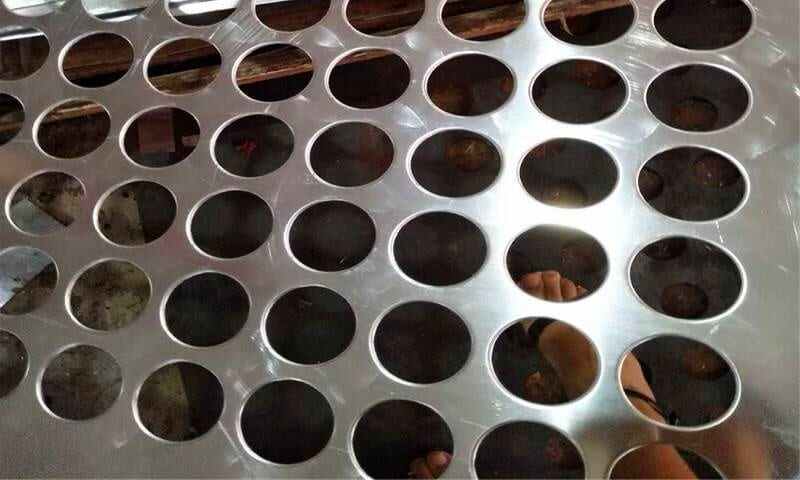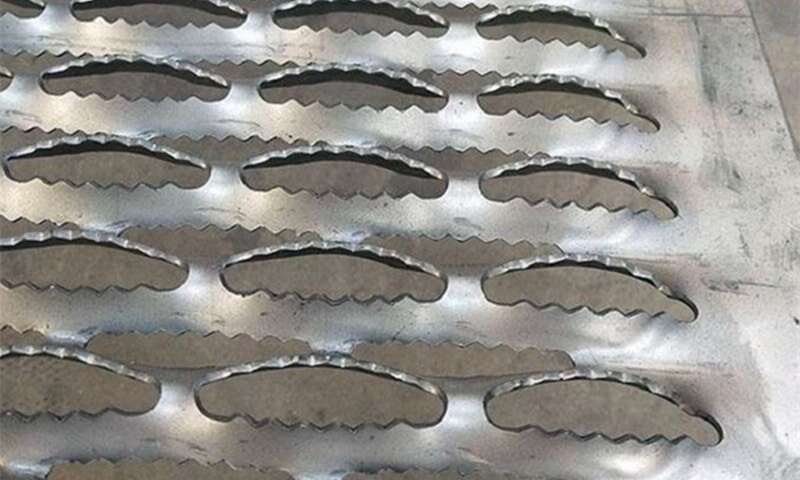In industries exposed to seawater, salt spray, and humid air, 316 perforated metal sheet stands out as one of the most reliable materials for maintaining long-term performance. Its exceptional corrosion resistance makes it a preferred choice for offshore platforms, shipbuilding, and coastal construction projects, where other metals quickly deteriorate under aggressive environmental conditions.

Unlike ordinary carbon steel or galvanized sheets, 316 stainless steel contains molybdenum, which significantly enhances its ability to withstand chloride-induced corrosion. This feature is crucial in marine environments, where chloride ions in seawater accelerate the corrosion process on most metal surfaces.
How 316 Stainless Steel Resists Marine Corrosion
The superior performance of the 316 perforated metal sheet lies in its passive protective film, an ultra-thin chromium oxide layer that forms naturally on the surface. This film acts as a shield, preventing oxygen and moisture from reaching the underlying metal. Even if the surface is scratched or abraded, the oxide layer quickly regenerates, maintaining protection over time.
Molybdenum plays a vital role in improving pitting resistance, a localized form of corrosion commonly found in seawater environments. By strengthening the passive film, it helps prevent small pits from expanding, which can otherwise lead to structural weakness or perforation in lower-grade stainless steels.
Advantages of 316 Perforated Metal Sheets for Industrial Use
316 perforated sheets not only provide corrosion resistance but also deliver exceptional mechanical strength and dimensional stability. These characteristics make them suitable for a variety of demanding industrial applications, such as:
- Marine filtration and drainage systems
- Offshore oil and gas platforms
- Ship and boat hull reinforcement
- Coastal ventilation and protective barriers
- Power plant and desalination facility components

For industries that require customized dimensions, perforation patterns, and thicknesses, our factory provides flexible customization to meet any specification — from prototype samples to large-scale production runs. Whether you need round holes, slotted holes, or hexagonal designs, we manufacture according to your project’s requirements with consistent precision.
Comparison with Other Perforated Metal Materials
While aluminum and galvanized perforated metal sheets are commonly used in general industrial or architectural projects, they lack the same resistance to saltwater corrosion. For instance, aluminum perforated metal sheets are lightweight and cost-effective but prone to pitting when exposed to high chloride concentrations. In contrast, 316 perforated metal sheet maintains its integrity even after years of exposure to seawater and moisture.
Similarly, compared with stainless steel perforated sheets made from grade 304, the 316 version offers far superior corrosion protection, especially in coastal or marine conditions where chloride exposure is unavoidable.
Why Choose Our Factory for 316 Perforated Metal Sheets
As a professional manufacturer of perforated metal panels in China, we provide complete customization support — including different hole shapes, sizes, thicknesses, and materials. Our technical team ensures each sheet meets precise tolerance and durability standards required for heavy-duty industrial projects.
With advanced production equipment and strict quality control, we can supply both small-batch orders and large-scale customized production. This flexibility allows clients to optimize cost and performance without compromising quality.
Contact Us
If you are looking for durable and corrosion-resistant solutions for marine or industrial use, our 316 perforated metal sheet is an excellent choice.
Contact us today at info@perfsheet.com to request a quote, technical consultation, or sample for evaluation.












